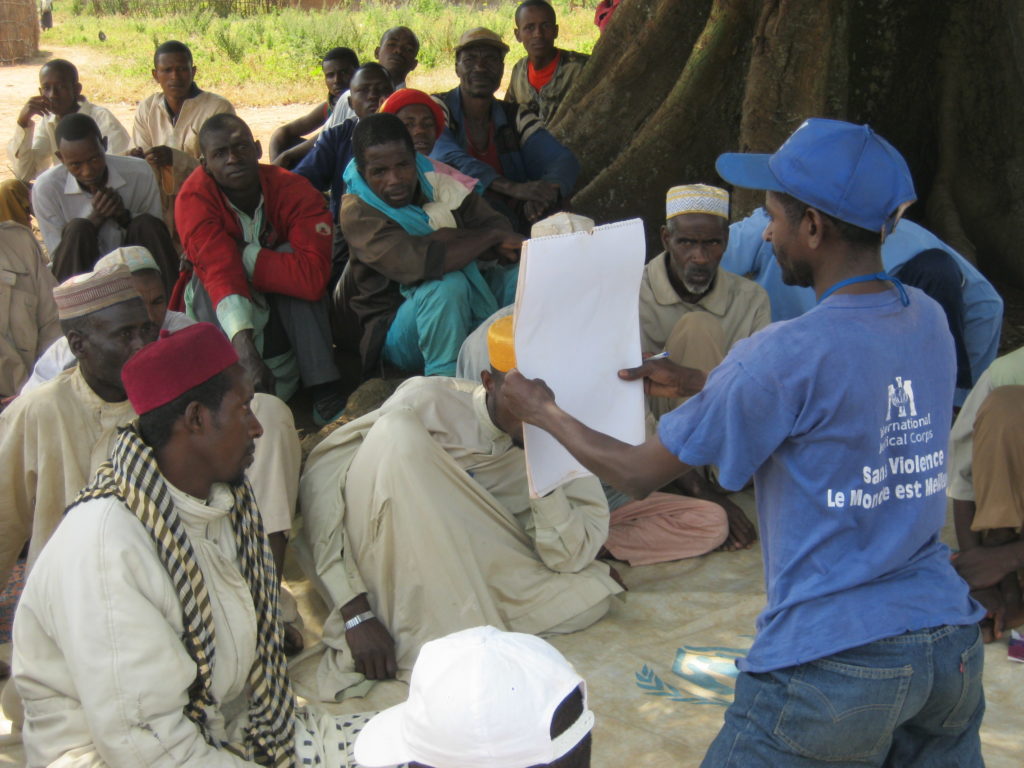Ours is a world that far too often tolerates violence against women and girls, making egregious transgressions disturbingly commonplace and pervasive. When a woman or girl experiences violence, sexual or otherwise, she needs comprehensive care to help heal the detrimental—and at times irreparable—physical and psychological consequences. International Medical Corps provides critical gender-based violence (GBV) treatment in the places it is most needed—and, often, most lacking—while educating women on their rights and connecting them to services that support their well-being.
Yet we don’t want simply to help heal the violence—we want to help end it. We believe, resoundingly, that enough is enough. We envision a world in which the rights of women and girls are sacrosanct, and their bodies belong only to themselves.
This means fighting the oppression, objectification and dehumanization that lead to GBV and afford perpetrators overwhelming impunity throughout the world. To this end, we work with men and traditional leaders in highly patriarchal settings to educate them on both the consequences of GBV and the rights of women and girls. Such efforts are not easy. They take time. But this work is absolutely critical to dismantling the attitudes and behaviors that perpetuate rape and abuse.
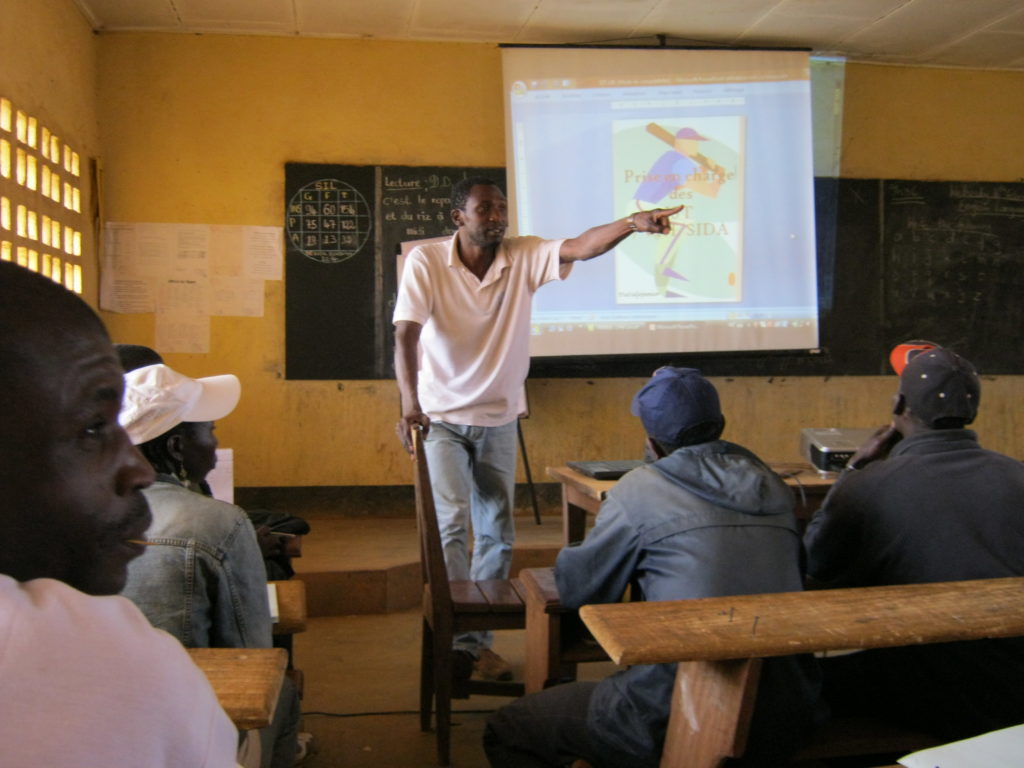
Activating Male Agents of Change in Cameroon
Along Cameroon’s far north border, for example, GBV remains widespread in camp settings and surrounding communities, where International Medical Corps serves refugees and internally displaced persons. Here, girls as young as 12 are forced into marriages with much older men, and many leave school early to have children or help with household chores. Beatrice Essebe, our GBV Manager for the Mokolo District, works with her colleagues in the region to provide psychosocial support and ensure medical treatment for GBV survivors, in an environment where it would otherwise be nonexistent.
“We have to work on their inner beings,” Beatrice says of the women and girls she serves. “It is not easy for youth, especially when they come to see the truth.” According to Beatrice, many young women fall into depression when they realize the consequences of early marriage and childbirth; of leaving school too early while lacking an income or skills to rely on. To counter this, International Medical Corps provides safe spaces for women and girls to support one another, and offers programs to help them learn new skills and income-generating activities. We also provide counseling that Beatrice says helps women and girls change their mindset, regain control over their situations, stop minimizing themselves, connect to services and opportunities, and continue their normal life within the community.
But the most seismic shift in these women and girls’ circumstances could come from changing the attitudes and behaviors of the men who violate and seek to control them—often their own husbands and fathers. To this end, our “husband schools” promote a “positive male approach” that presents the negative consequences of GBV and works to cultivate male role models who can educate other men in the community.
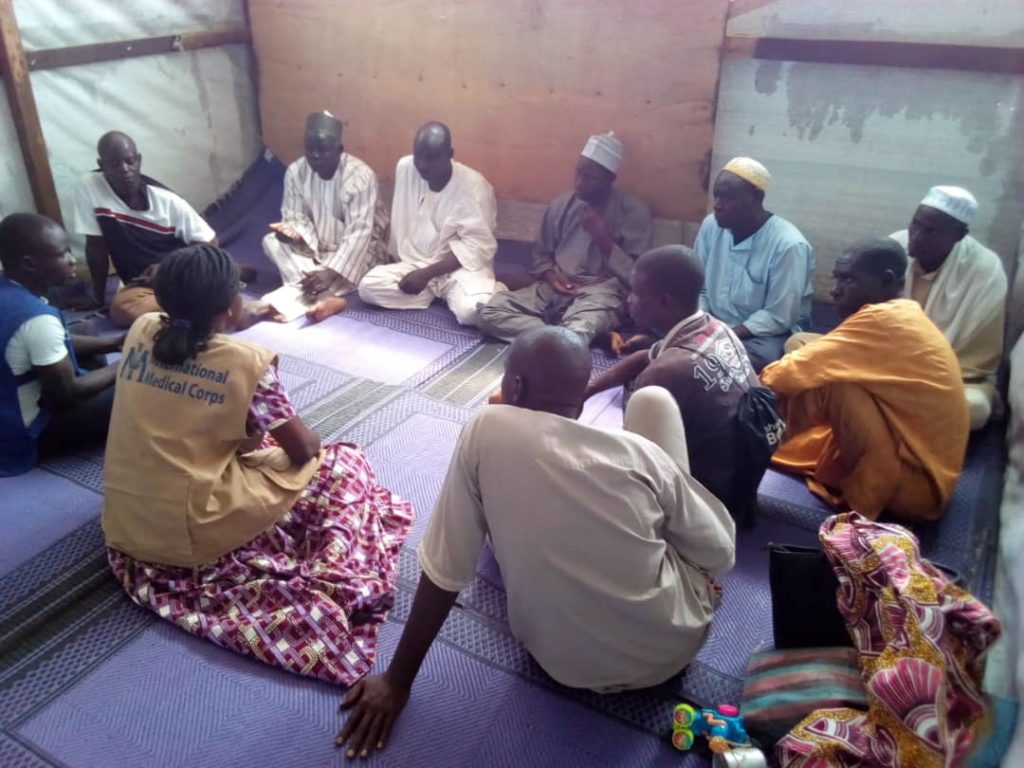
“It’s not easy,” says Beatrice. “If there’s a group of 10 men, perhaps only one will stand up.” But one man, properly educated about GBV and its effects, can influence the attitudes of his male peers, and can join his wife in a mixed-gender group to support her in speaking about her experience.
International Medical Corps also works with traditional leaders to call on community members to participate in GBV activities, and educates youth through our Protection Clubs and Gender Clubs. Beatrice notes that while men over the age of 40 are far less receptive to change—having grown up in a system with traditional gender roles—for the youth, it is “more about ignorance,” meaning that education can go a long way in changing attitudes.
Beatrice acknowledges the challenges of working with men and traditional leaders in Cameroon. The hardest part is helping men understand why this work matters. But once their understanding shifts, their actions change dramatically and the positive effects multiply, creating a “huge impact.” She says that working with men is helping to stop child marriage, as well as promote girls’ education, family planning practices, greater maternal health and more positive communication within families. “Once they have understood, the men want to keep fixing things,” says Beatrice. “They call me even after the program has ended and say: ‘Give us another challenge.’”
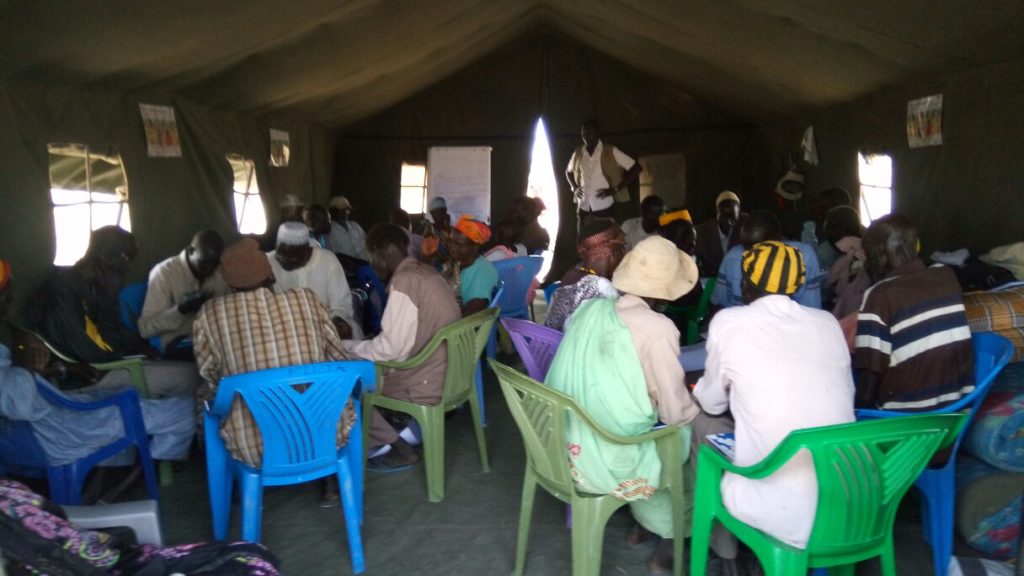
Changing Gender Dynamics in South Sudan
Our GBV team in South Sudan also is working to change detrimental attitudes toward women and girls arising from traditional practices. GBV Manager Gertrude Garaway reports that women are happy with our programs, which teach them new skills, as well as how to access psychosocial services that help them recover from violence and abuse. However, women who report abuse to our GBV team rarely want to take action against their perpetrators, particularly if their abuser is their husband or intimate partner. Even the local police have yet to embrace their responsibility to hold perpetrators of GBV responsible. Instead, the women we work with tell Gertrude and her colleagues, “You have to talk to the men.”
“The women say, ‘We can talk all we want about our rights, but if the men don’t know our rights and accept our rights, it won’t change,’” says Gertrude.
In our eight-week “Engaging Men in Accountable Practices” program, women discuss the violence they endure and suggest actions that the men in their communities should take. These suggestions in turn inform the curriculum in groups that engage men in positions of power in the community, challenging their beliefs and behaviors. Last year, 20 men went through the 16-week program; at the end of the program, one of the traditional leaders said, “I have always believed that women look for the violence they experienced, including rape, and I have always blamed them. But with the understanding I gained through this program, I will never blame any woman who experiences GBV, and I will ensure perpetrators are punished.”
“We are seeing remarkable changes among the men who participate,” explains Gertrude. She recalls one man who said he regrets ever beating his wife, and who has stopped arguing with her. Though he got a lot of pushback from his community at first—with other men calling him a “less man” and ridiculing him for “letting his wife control him”—today, other men are trying to copy his friendship toward his wife because they see how much happier and healthier the couple is. Says his wife, “Now, he will ask me my opinion in everything.”
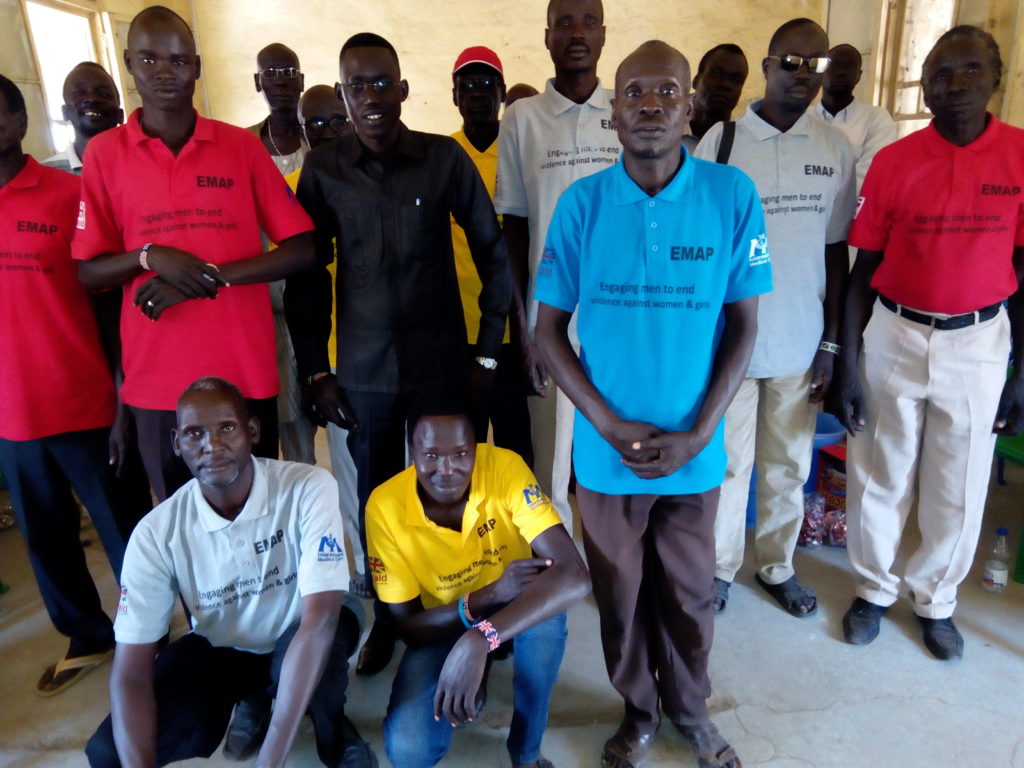
Gertrude, who has been fighting GBV globally for more than a decade, says that it is extremely important to engage men in the battle against gender-based violence. “Women can be in power at any level, but if the men they live with do not understand why women deserve rights, they will continue to abuse women,” she says. “And if there are not laws, they will not hold perpetrators accountable.”
Engaging with just a few male leaders can have a big effect, she says. Each man whose eyes are opened to the ill effects of GBV can in turn affect more and more men—and, as Gertrude says, “gradually a big impact will be felt.”
About the Global Leader’s Project
International Medical Corps’ two-year “Respecting Traditions, Protecting Women and Girls: Guidance to Engage Community Leaders for GBV Prevention & Response” project involves developing, piloting and finalizing a user-friendly toolkit, with guidance and training materials, for GBV programs to apply in their work with community leaders (including faith leaders, traditional leaders and women leaders). With support from the U.S. Officer for Foreign Disaster Assistance, International Medical Corps is piloting the project in three countries: Cameroon, Iraq and Mali. As community leaders carry great influence and responsibility, effectively engaging leaders can help to avert harmful practices and strengthen local action for both prevention and response of GBV. Through application of the toolkit, leaders will be supported to develop attitudes, knowledge, and skills to reinforce protective environments for women and girls and to provide appropriate support to survivors of GBV.
